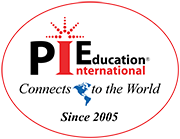Program Summery
Notre Dame University's Bachelor of Education (Secondary)/Bachelor of Science is a well-rounded undergraduate program that combines theory, the latest teaching technology, and plenty of hands-on classroom experience. Working from a rigorous and practical curriculum, students will acquire the academic skills needed to teach secondary school students. In addition, they will be required to choose one major teaching area such as English, Humanities and Social Sciences, Mathematics, Science or Religious Education and complete eight courses in this chosen major.
As part of the Bachelor of Science component of the double degree students will study a set of core interdisciplinary Science courses including experimental design, math, biology and chemistry. These courses provide the basis for strong skills in scientific investigation, including data collection and analysis, critical thinking, problem solving, teamwork, and effective communication. These skills are highly sort after by employers and applicable to many workplaces both within and outside of the field of Science.
Building on these core Science courses, students will deepen their study of Science by selecting a Science Stream that matches their interests: Biology & Environment, Environment & Heritage, Human & Medical Science, or Multidisciplinary Science. Each Stream ensures in-depth knowledge and skill development through practical hands-on experience in the classroom, the laboratory, and in the field. This will prepare students well to inspire their young students and teach Science within an educational setting.
An integral part of this degree is the 32 weeks of supervised teaching (practicum) experience. This is divided into two weeks of classroom immersion and teacher assistance in their first year; one term with a special focus on a Learning Area Major in their second year; one term with a special focus on their second Learning Area in their fourth year; and an internship in their final year which focuses on both their Learning Area Majors, as well as Religious Education if students have chosen to complete their accreditation to teach Religious Education.
Please note: Education students in WA must sit the national Literacy and Numeracy Test for Initial Teacher Education Students (LANTITE). The test is administered externally by the Australian Council for Educational Research (ACER). Students must register and pay for the test.
Academic Background
Minimum Level of Education Completed
Grade 12 / High School
Minimum GPA
75%
Minimum Language Test Scores
IELTS
7.5
Reading
7
Writing
7
Listening
8
Speaking
8
The University of Notre Dame Australia - Fremantle
32 Mouat Street, Fremantle, Western Australia, Australia
Program Intakes
February 2025
Open date
May 30, 2024
Submission deadline
November 2, 2024
July 2025
Open date
September 5, 2024
Submission deadline
May 1, 2025
Cost and Duration
3-Year Bachelor's Degree
Program Level
5 year double bachelor's degree including 32 week teaching practicum
Program Length
$29710 AUD
Cost of Living
$0 AUD
Application fee
$37679 AUD
Tution fee
Other Fees
Overseas Student Health Cover Fee: $653 per year
Study Destinations
© 2005-2024 PIE Academy Inc.


